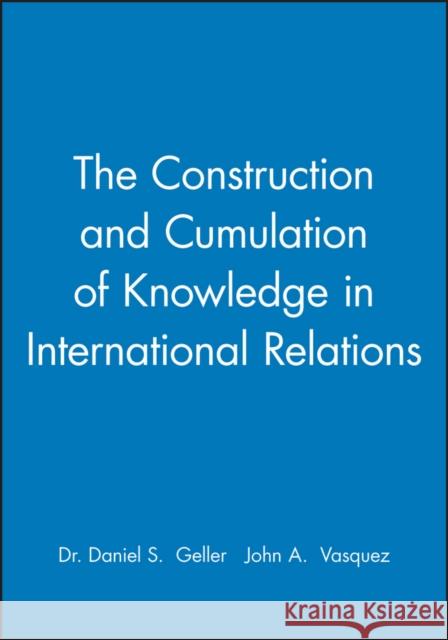The Construction and Cumulation of Knowledge in International Relations » książka
topmenu
The Construction and Cumulation of Knowledge in International Relations
ISBN-13: 9781405132459 / Angielski / Miękka / 2005 / 188 str.
The Construction and Cumulation of Knowledge in International Relations explores the construction and cumulation of knowledge within the scope of international relations inquiry.
- Editor John A. Vasquez is a former president of the International Studies Association
- Smartly addresses the issue of international relations from the bottom-up through an examination of the construction and cumulation of knowledge
- An ideal companion text for the study and discussion of current issues in international relations











